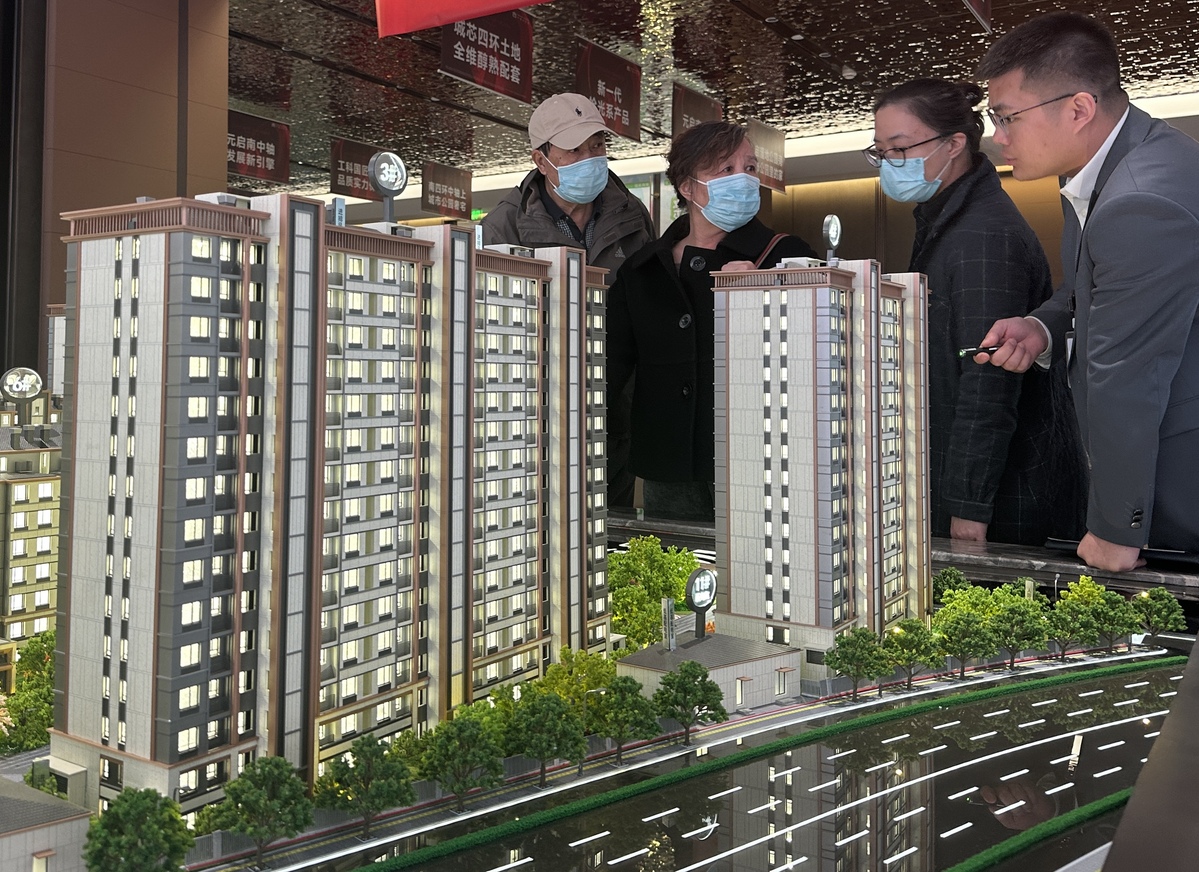Measures released to digest housing inventories


A slew of measures, including cutting down payment and mortgage interest rates and turning housing inventories into government subsidized homes, were announced on Friday amid mounting market expectations by officials and industry experts to increase the digest of housing inventories.
Introduced on Friday, the measures are believed to make profound impact on the property market. As the latest attempts to stabilize the property market, these policies are in line with the nation's goals of accelerating its pace of building a new real estate development mode and promoting the high-quality development of the property industry, said officials and industry experts after digesting the latest data from the National Bureau of Statistics.
During a teleconference on property policies held in Beijing on Friday, Vice-Premier He Lifeng urged local governments with more housing inventories than others to purchase some of the stocks for government subsidized housing according to Xinhua News Agency report.
Also on Friday, minimum down payment ratios for individuals' commercial housing mortgages were lowered to no less than 15 percent for first-home purchases, and 25 percent for second-home purchases, according to a joint notice issued by People's Bank of China and National Financial Regulatory Administration.
In another spate announcements, the central bank said it would further lower mortgage interest rates, as well as that of the housing provident fund.
The high frequency of releasing measures on the property sector by Chinese regulators will shore up the property market by offering homebuyers more favorable conditions, like lowering requirements and cutting cost in home purchase, and it is expected that both rigid demand and needs to improve home living will be better satisfied, said Ma Hong, a senior researcher with GDDCE (Guangzhou Development District Chief Economists) Industrial research institute.
The property data, revealed on Friday, has indicated that China's property sector's adjustments are continuing, said Liu Aihua, spokeswoman of the National Bureau of Statistics (NBS) during a news conference concerning the country's economic performance in April.
It is required to abide by the spirit of the Political Bureau of the Communist Party of China Central Committee meeting on April 30, fully implement the central government's work deployment, respond to the latest supply and demand conditions as well as people's expectation for quality housing, said Liu, who called for policies and measures to reduce housing inventories and optimize new supplies.
Chinese cities reported deeper home price drops in April both in year-on-year and month-on-month terms, which indicated the property market remains in a process of adjustment, said Wang Zhonghua, a statistician with the National Bureau of Statistics' (NBS) urban division.
Price declines were broadened month on month in all the three tier cities in both new homes and pre-owned properties, said Wang.
We can see 64 out of the 70 Chinese cities tracked by the NBS report drops in new-home prices in April, compared to 57 in March, which showed mounting pressures to destock home inventories, said Yan Yuejin, director of Shanghai-based E-house China Research and Development Institution.
New-home price drops in the four top-tier cities — Beijing, Shanghai, and Guangzhou and Shenzhen in Guangdong province — fell 0.6 percent from March, and declined 2.5 percent year-on-year, NBS data showed.
The 31 second-tier cities tracked by the NBS reported that new-home prices dropped 0.5 percent month-on-month and 2.9 percent year-on-year on average in April.
In 35 third-tier cities, new-home prices declined 0.6 percent month-on-month and dropped 4.2 percent year-on-year.
"The new home price drop has passed on to the pre-owned home market, which also experienced extended declines," said Li Yujia, chief researcher at the Guangdong Planning Institute's residential policy research center.
"In comparison with a month ago, the pre-owned home price index in China's 70 large and medium cities slid 0.9 percent on average, presenting a drop of 12 months in a row," Li said.
The evident increase of homes available for transaction on the second-hand home market and a weak market expectation are attributed for the big price drops, added him.
The NBS also published property sales data on Friday, according to which, commercial housing sales by floor area amounted to 292.52 million square meters in the first four months this year, a decline of 20.2 percent year-on-year. Among them, residential property sales reported a 23.8 percent drop from the same period of last year.




































